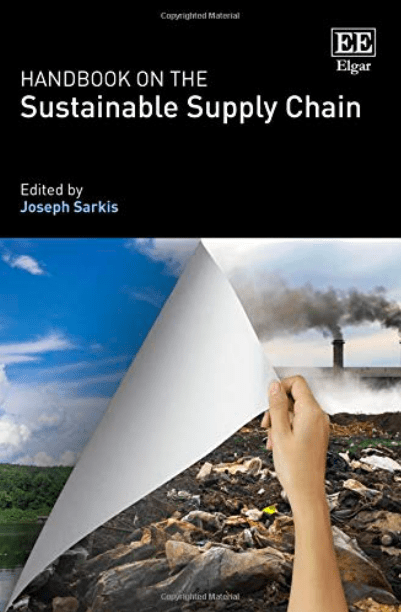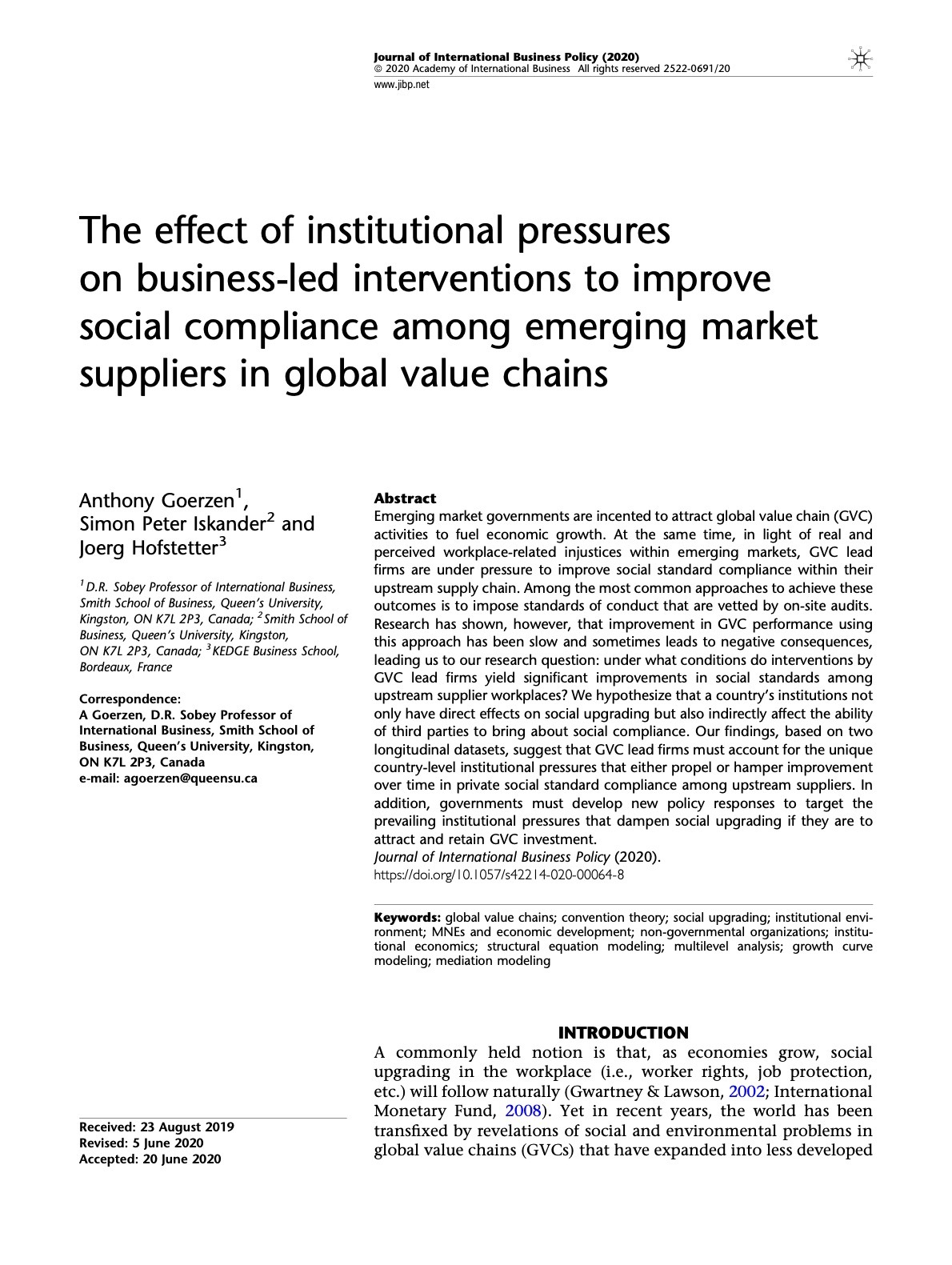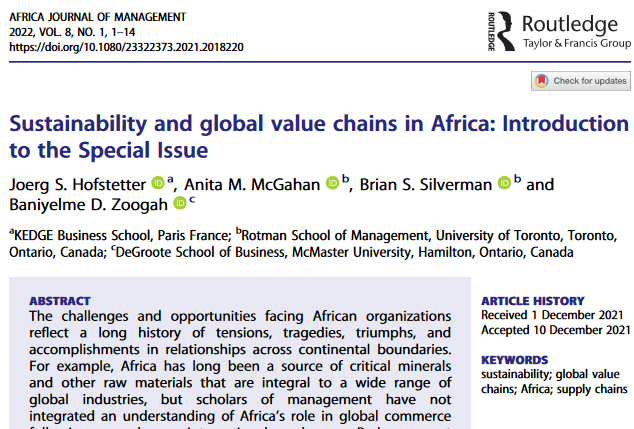︎

Joerg Hofstetter
KEDGE Business School, France
Dr. Joerg S. Hofstetter, an expert in sustainability, procurement and multinational multi-tier value chains with over 20 years of experience, is Associate Professor in Supply Chain Management at KEDGE Business School Bordeaux, President of the International Forum on Sustainable Value Chains (ISVC), Lecturer at the University of St. Gallen, and Fellow of the Center for Organization Research & Design (CORD) at Arizona State University. He consulted various national government and intergovernmental organizations (including the OECD, the World Bank Group) as well as over 100 private and public companies across different industries, and is non-executive board member in the private sector. He is a founding member of the GRONEN Foundation, a member of Future Earth’s Working Groups on Circular Economy and Global Value Chains, a member of the Green Growth Knowledge Platform’s Trade & Competitiveness Research Committee, and involved in several UNIDO working groups. Previously, he served at the University of St. Gallen as Vice Director of its Chair of Logistics Management and Assistant Professor of Management. Dr. Hofstetter, a German national, has extensive knowledge in sustainability, circular economy, sustainability in multinational multi-tier supply chains, sustainability in procurement, global value chains, value chain mapping, sub-supplier management, supplier development, distribution management, and corporate supply chain management. He received several substantial public and private research grants, works internationally with both the public and the private sector, and published in leading academic journals, expert journals and books. Under Dr. Hofstetter’s leadership, the International Forum on Sustainable Value Chains (ISVC), a Switzerland based non-profit association, has become a recognized academia-led platform with members from different parts of the world and sectors developing and implementing scientifically proven, hands-on solutions to master the many sustainability challenges in global value chains. He holds a M.Sc. in Mechanical Engineering from University of Stuttgart, Germany, and a Ph.D. in Management from the University of St. Gallen, Switzerland. He lives in Zürich, Switzerland with his wife, an international IPR lawyer and senior manager, and their daughter.
MORE ABOUT JOERG HOFSTETTER >Jan 1, 2018
Jörg H. Grimm, Joerg S. Hofstetter, Joseph Sarkis
Interrelationships amongst factors for sub-supplier corporate sustainability standards compliance: An exploratory field study
Sub-supplier compliance with a focal firm's corporate sustainability standards (CSS) is increasingly recognized as an important dimension of sustainable supply chain management. This paper draws on recent sub-supplier management studies and their critical success factors (CSFs) to investigate t...

Jan 1, 2019
Joerg S. Hofstetter
Multi-tier sustainable supply chain management
A focal company’s boundary of accountability for social or environmental misconduct in its supply chain is hard to define. Non-sustainable business practices can occur at all stages in the supply chain: at raw material exploitation, intermediate production, or transportation. And it can occur atan...

Jan 1, 2020
Joachim C. F. Ehrenthal, Thomas W. Gruen, Joerg S. Hofstetter
Recommendations for Conducting Service-Dominant Logic Research
In the digital age, companies compete on how well their service meets customer needs and solves customer problems, interacting with ever more actors to fulfill their promise. A well-suited mid-range theory to conduct research in this “new” world is service-dominant (S-D) logic. However, there ar...

Jan 1, 2020
Anthony Goerzen, Simon Peter Iskander, Joerg Hofstetter
The effect of institutional pressures on business-led interventions to improve social compliance among emerging market suppliers in global value chains
Emerging market governments are incented to attract global value chain (GVC) activities to fuel economic growth. At the same time, in light of real and perceived workplace-related injustices within emerging markets, GVC lead firms are under pressure to improve social standard compliance within their...

May 12, 2022
Jörg Hofstetter, Anita McGahan, Brian Silverman, Baniyelme Zoogah
A Unique Diversity: Understanding the sustainability and global integration of African businesses
Diamond rings, chocolate delights, coffee, cars and portable electronics are all integrally grounded in the African continent, however Africa’s vital contributions have not been fully integrated into scholarly understanding of supply or value chains.

May 12, 2022
Joerg S. Hofstetter, Anita M. McGahan, Brian S. Silverman, Baniyelme D. Zoogah
Sustainability and global value chains in Africa: Introduction to the Special Issue
The challenges and opportunities facing African organizations reflect a long history of tensions, tragedies, triumphs, and accomplishments in relationships across continental boundaries. For example, Africa has long been a source of critical minerals and other raw materials that are integral to a wi...

Mar 15, 2024
Jörg H. Grimm, Joerg Hofstetter, Joseph Sarkis
Corporate sustainability standards in multi-tier supply chains – an institutional entrepreneurship perspective
This study extends research on buyer firm roles in improving supplier sustainability practices by considering institutions – norms and rules – in the organisational field in which suppliers and sub-suppliers operate, exerting pressures on these actors to align their respectivepractices. We intro...

